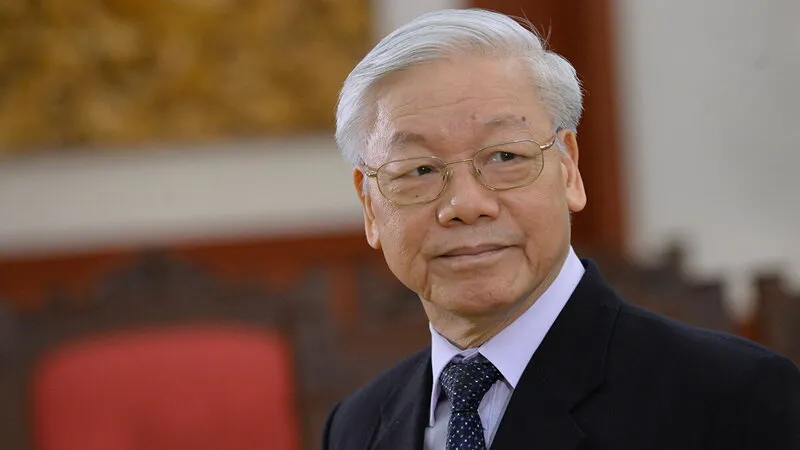Vietnam sets sight on becoming high-income country by 2045: State president
It is essential to make a breakthrough in institutional reform to better mobilize resources for development and prevent splurge and corruption in state resources management.
By 2045, when Vietnam celebrates the 100th anniversary of the Independence Day, the country is expected to become a developed and high-income country, according to Party General Secretary and State President Nguyen Phu Trong.
| Party General Secretary and State President Nguyen Phu Trong. Photo: AFP. |
The year of 2045 is one of the three major milestones that Mr. Trong mentioned in his article on the occasion of the 75th anniversary of the August Revolution and the Independence Day (September 2, 1945 – September 2, 2020), and ahead of the upcoming 13th Party Congress.
When the country celebrates these two milestones in 2025, Vietnam would be middle-income country with a certain level of modernization and industrialization, Mr. Trong wrote.
Five years later, in 2030, as Vietnam marks the 100th anniversary of the founding of the Communist Party of Vietnam, Vietnam is set to be an upper middle-income country.
Over the years, Vietnam has gained major socio-economic achievements that placed the country among the fastest-growing economies in the region and of the world, according to the Party chief and State president.
With improvement in the growth quality and a solid foundation of macro-economy, the country maintained a positive growth rate at a time of global recession caused by the Covid-19 pandemic.
Vietnam remains firm in reaching the highest socio-economic development targets possible for 2020 and of the 2016 – 2020 period, Mr. Trong stressed.
Moreover, the poverty rate has gradually declined from 58% in 1993 to 9.88% in 2016 and below 3% in 2020.
According to Mr. Trong, other aspects of social security, healthcare, training – education, science – technology have also witnessed positive transformation.
From a low starting point of a poor and underdeveloped country, Vietnam has now turned into a developing one with a population of nearly 100 million. The country has set up diplomatic relations with most of countries in the world, proving to be a credible and responsible partner of the international community.
However, Mr. Trong acknowledged the country’s economic growth is still disproportionate to its potential.
“After four years of high economic growth, Vietnam’s GDP growth in 2020 is forecast at around 3%, while the economy is struggling with negatives impacts from the Covid-19 pandemic,” Mr. Trong asserted.
Among notable issues, Mr. Trong urged the country to enhance its economic resilience and ensure greater efficiency in operation of state-owned enterprises.
There is also the lack of sustainability in the rapid development of the private and foreign-invested sectors, Mr. Trong added.
In the coming time, Mr. Trong emphasized the development strategy to focus on rapid and sustainable economic growth, Party building and cultural promotion.
Mr. Trong added the priorities would be to perfect the legal framework so as to support further socio-economic development based on a socialist-oriented market economy.
The government would continue to improve the legal environment to ensure a harmonized relationship among the State, the market and society.
Mr. Trong said it is essential to make a breakthrough in institutional reform to better mobilize resources for development and prevent waste, corruption in State resources management.
Better conditions must continue to be created for the private sector to become one of the main driving forces behind Vietnam's growth.
Mr. Trong referred to high labor productivity and competitiveness as key for Vietnam’s rapid and sustainable development, which lays a foundation for a transition towards a new growth model based on technological advancement and innovation.
The Vietnamese president stated the government would continue to heavily invest in modern infrastructure and new economic fields, especially digital economy, society and government.













